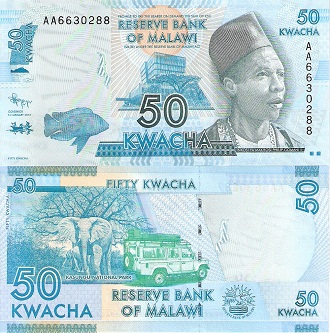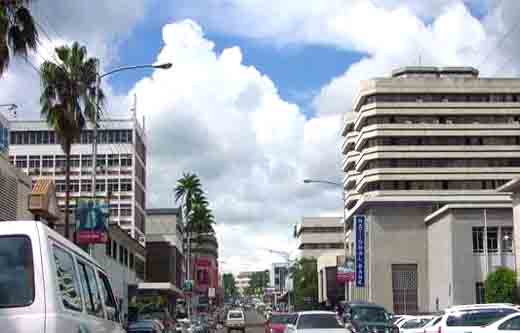It does not need a professor of economics to prove that poverty levels are high in Malawi and that it is biting hard each passing day.
Grim faces, apparently smeared with hopelessness and destitution, are common.
The poverty situation in Malawi is still dire. This is a fact everyone, including those sitting on the driver’s seat at Capital Hill, cannot run away from.
Overall, progress to reduce poverty has been slow and additional efforts are required to secure the achievement of United Nations’ eight Millennium Development Goals (MDGs), which seek to halve poverty by 2015.
Poverty continues to be defined in different ways by many people, but both economists and social workers often define poverty in two ways.
The poverty puzzle in Malawi
A social definition of poverty is rather all-inclusive. It embraces the lack of essential items such as food, clothing, shelter and water needed for proper living. This definition is in tandem with the UN summit on social development, ‘the Copenhagen Declaration.’
The declaration describes poverty as a condition characterised by severe deprivation of basic human needs, including food, safe drinking water, sanitation facilities, health, shelter, education and information.
Economically, poverty is defined as inability to satisfy one’s basic needs because one lacks income to buy services or from lack of access to services.
What boggles minds, however, is that while Malawi in recent years has been registering high gross domestic product (GDP) real growth rates, on one hand, more Malawians continued to be counted poor with income inequalities widening.
Memories are still fresh when Malawi was touted as having the second fastest growth of 9.8 percent in 2008 after oil-rich Qatar.
Statistics bear it all. The Malawi economy performed well until recently with an average growth of around 7.5 percent, well above the sub-Saharan Africa average.
In 2009, Malawi grew by 8.9 percent before falling to 6.7 percent in 2010.
The distinction between economic growth and development comes into play when discussing the share of national cake as economic growth is said to be quantitative while the latter qualitative.
Findings of recent surveys conclude that high economic growth rates in Malawi attained in recent years have not, for the most part, trickled down to the poor. Effectively, Malawi has failed to have what economists call ‘inclusive growth.’
Results of the recently disseminated 2010/11 Integrated Household Survey (IHS) launched in Lilongwe reveal that 24.5 percent of the 14 million population is leaving in ultra-poverty—a condition of extreme deprivation of human needs.
Rural people are in the jaws of callous poverty as the research shows that urban rate of extreme poverty stands at 4.3 percent as compared to rural ultra-poverty levels at 28.1 percent.
IHS results indicate that poverty levels, as measured through headcount index, have “slightly” improved from 52.4 percent to 50.7 percent.
Distribution of wealth
Based on the survey results, from 2005 to 2011, the gap between the rich and the poor has been widening with income distribution indicators, as measured through the gini-coefficient, deteriorating from 0.39 in 2005 to 0.45 in 2011.
The gini-coefficient, a commonly used measure of income inequalities, shows how close a given distribution of income is to equality and inequality with the closer it gets to one the more unequal is the distribution.
Economists, internationally agree that the national wealth as measured by GDP must be shared among all social segments because persistent poverty and inequality causes social and political instability.
However, as the United Nations observe, focusing only on economic growth alone is not enough to reduce poverty levels in an economy.
“Here in Malawi, poverty is no longer a problem of resource scarcity, but mainly of distorted distribution of national income. This is bad for a country because economic growth has to be shared equally,” said a government economist on Monday, speaking on condition of anonymity.
He argued that for economic growth to benefit more people, Malawi, just like many other countries, must facilitate the redistribution of wealth by expanding infrastructure, services and jobs for the poor.
Malawi’s development partners are worried about the country’s poverty status and are sceptical about its achievement of the MDG goal on poverty by the 2015 target date despite the country achieving strong growth rates.
Last Tuesday, Malawi’s key donors under the Common Approach to Budget Support (Cabs) were also baffled with continued poverty levels in Malawi.
Cabs consists United Kingdom (UK), Norway, the African Development Bank (AfDB), and the European Union (EU), the World Bank and Germany. The International Monetary Fund (IMF) and United Nations Development Programme (UNDP) participate as private observers.
Cabs co-chairperson, who is also the Norwegian Ambassador Asbjorn Eidhammer, said there is need for Malawi to devise long-term policy measures to help the landlocked nation boost economic growth ‘that benefits all.’
“The [IHS] showed that poverty has not declined as much as we hoped for over the last years, despite strong economic growth, significant aid inflows and various large-scale government programmes targeted at the poor such as the agricultural subsidy programme,” said Eidhammer.
He stated that with only a marginal and statistically non-significant decline in poverty rate from 52.7 percent in 2004/05 to 50.7 percent in 2010/11, it is evident that Malawi will have problems reaching the MDG concerning poverty.
He adds: “This means that both we, as donors, and the government have to reconsider our strategies to find out where we failed and where we can see results, and from this improve our efforts, ways of working, coordination and prioritisation of key issues.”
World Bank chief economist for Africa, Shantayanan Devarajan, through a recent televised press conference, said even among Africa ’s fast growing countries, a disturbing number are not seeing rapid poverty reduction.
“For example, despite years of significant oil revenues, the central African countries have some of the lowest human development indicators in the world. Perhaps the reason is that oil revenues go directly from oil companies to the government, without passing through the hands of the citizens and the citizens don’t realise that the revenue is theirs,” he said.
Malawi Government realises that poverty is haunting most Malawians and that past policies have not been successful in reducing it.
Minister of Economic Planning and Development Atupele Muluzi argues there has been a slight improvement in eradicating poverty rates in Malawi despite impressive economic growth rates.
“Although there has been an improvement in poverty levels at national level, the improvement is quite insignificant considering that we have been growing our economy at about seven percent annually since 2005. Our growth has not been inclusive enough and is not imparting on the poor,” Muluzi told news conference in Lilongwe during the launch of IHS.
Muluzi said poverty statistics raise concern as to why Malawi is not significantly improving in combating both poverty and income inequalities.
“All along, we were under the impression that the poverty levels are declining,” said Muluzi, referring to previous regimes which insisted that poverty had declined to less than 4 percent.
“For us to begin tackling the economic issues, we need to grow our economy at a faster rate by at least 15 percent and that is the target we have set our vision on. It is not impossible, I believe we can do it [and] all it requires is the right spirit. This is not 15 percent for once or twice, but sustained growth,” he said.
As days turn into months and months into years, our politicians, more especially in government, need to be in the forefront to actualise economic documents such as the second Malawi Growth and Development Strategy (MGDS II), among others, if economic growth will equal poverty reduction one day.



.jpeg&w=60&q=100&h=60)








